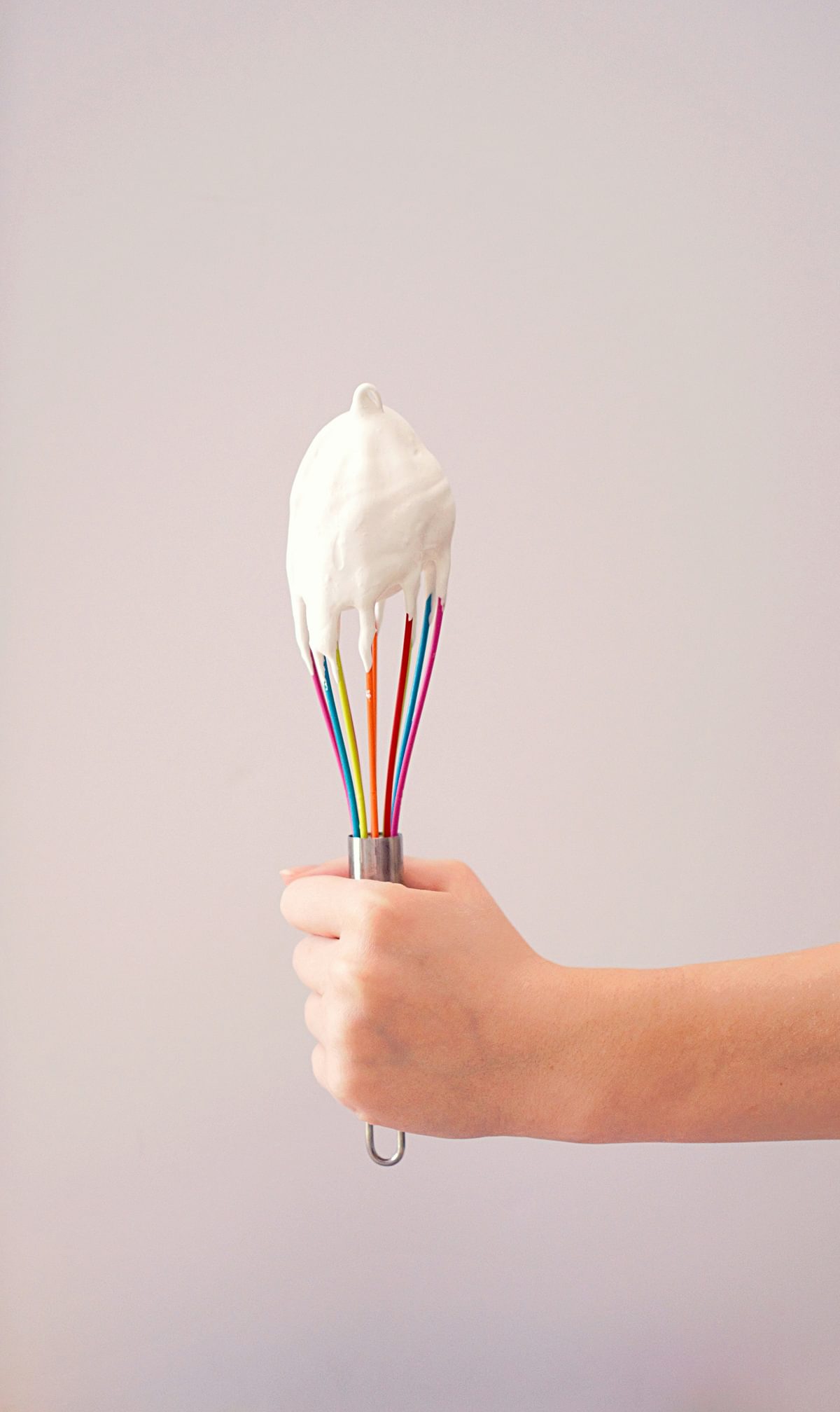
I have always been a baker. When I quit my job years ago to stay home with my kids, baking became more than a hobby, it became an obsession. Throughout my children’s lives, they have always known only homemade versions of everything. My youngest was about seven when she learned the existence of store-bought cookie dough. Mind. Blown. And also slightly disappointed in humanity. I even helped my son start a cupcake business when he was 8 that took over my kitchen for a couple of years, which may have burned him out on baking for a while, but my own interest never wavered. So when COVID hit, I along with the rest of the first world fell hard. I jumped on the sourdough bandwagon with my first starter I ordered by mail, named Oscar Wilde, as in wild yeast. It made sense at the time. I experimented for months, feeding it and baking all manner of sourdough recipes (the crackers were our favorite) before I realized I would never be patient enough for sourdough. The impulse to retreat into baking during national crises has never wavered since 2020; it just took a different form. A cancer diagnosis in October of that year and the ensuing treatment as well as the simultaneous dissolution of my marriage slowed me down considerably. Desperate for distraction, I escaped into baking shows, or one in particular, which had over the years ruined me for all others: the Great British Bake Off.
When I first encountered the show (dubbed the "Great British Baking Show" in the U.S. due to Pillsbury’s copyright on the term “Bake-Off”) along with the rest of the country on PBS in 2014, I was transfixed. I was accustomed to the Food Network competitions like Chopped, Iron Chef, or Cutthroat Kitchen. Because I watched with my young children, I cringed at the hostility and mean-spiritedness of the contestants, the ruthlessness with which they approached the game. Behavior I was trying to discourage in my young children was somehow encouraged for foodies. When we stumbled upon Mary Berry— who apparently was the UK equivalent of Martha Stewart— and a burly, grumpy, baking Liverpudlian legend named Paul Hollywood, fronted by the delightful hosts Mel and Sue, we found a new obsession. These early seasons featured deep-dive vignettes about baking history with tours of historic kitchens and interviews from food historians about various dishes like eel pie and King Henry VIII’s tarts. Not only were the episodes informative, but they were set on the grounds of a rotating parade of stately manor homes, a welcome respite from the landscape of Guy Fieri’s frosted tips.
Instead of harried, jaded professional chefs, the candidates were amateur home bakers (decidedly unphotogenic) who over time included medical professionals in the NHS, a prison warden, a law student at Oxford, a dog trainer, an aerospace engineer, a stuntwoman, and a furniture restorer. Their gentle, uniquely British hobbies included sewing waistcoats, food foraging, woodworking, teaching badminton, and playing cello. The cooks spoke lovingly of their fellow contestants. They never expressed raw lust for the large sum of prize money dangled before them, because there was none. The award for being the best home baker in all of the UK? A cake plate and bragging rights. Not that they would have bragged anyways. They could not be goaded into even good-naturedly trash talking their competitors no matter how hard the hosts tried.
We binged every episode we could find over the next few years and relished every lovable quirk of the show, the double entendre of soggy bottoms, the eccentric contestants, and the British cuisine. Much of it LOOKED quite good… but was it?
We had to know. So we tried some recipes. The results were lackluster. Their beloved Victoria sandwich cake and iced Chelsea buns were disappointing, and it just got worse from there. We discovered that barring rare exceptions (such as a lemon poppyseed drizzle cake from Jane in Episode 1, Season 7), we didn’t actually like any of the results we tasted. British food is notoriously bad, so I wasn’t surprised. We laughed at spotted dick (not a medical condition), pork pies made with chopped pork coated in pork jelly, digestive biscuits (which aren’t in fact a cure for stomach issues), and puddings. We learned that all desserts are puddings, but not all puddings are desserts. We learned the difference between stodgy (dense and thick) and claggy (like glue to eat), the difference between a cookie (soft) and a biscuit (crisp), and an American biscuit (savory) and a scone (sweet). We learned that Brits as the inventors of fruitcake love alcohol, nuts, and dried fruits in most of their baking, as well as being obsessed with passionfruit and rhubarb. We witnessed a huge range of post-colonial Britain’s cultural makeup with curries (curry being the official dish of London), North African and Middle Eastern spices, and many other cuisines from the former Empire. It is often noted that the Brits conquered the world for spices and then used approximately none of them in their food. However, it is clear that spices are alive in well in the UK’s teeming immigrant community. The show also exposed us to the variety of regional accents of native English speakers in Britain, as in our house we often give our best impression of Paul Hollywood’s Liverpool accent and declare something “overwerked.”
So when my life blew up during COVID and I no longer had the energy to bake, I at least had my beloved show to carry me through. Fortunately, my life rebounded. I healed from cancer treatment, started a new life with a new kitchen, and gradually rediscovered my passion for baking and food in general. While I have not restricted myself from baked goods, I have maintained a self-imposed media diet since the pandemic that has kept me sane and battled depression. Though I am no longer gripped by my obsession with The Great British Bake Off, it remains a touchstone in my life and a comfort in particularly dark times. After months away from it, I binged earlier this year, and I will always watch new seasons, follow former contestants on social media, and relive fond memories of my and my children’s baking adventures. My oldest enters his senior year next fall and while he can’t always be persuaded to bake with me, he will certainly taste test, and maybe sit with me while we watch other people bake. This summer we travel to England for the first time together, and I’m overwhelmed with emotions. Rather than trying to experience all things GBBO, I think I will be content with sitting down for tea and scones, curries, and fish and chips. Soaking in the British vibe with my family will bring all those years of watching it full circle, even if mincemeat pies definitely won’t taste as good as they look.

